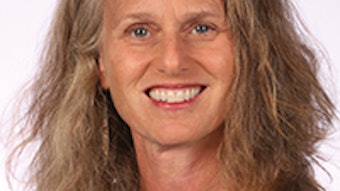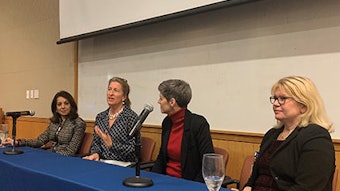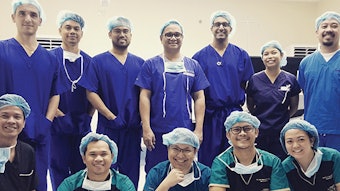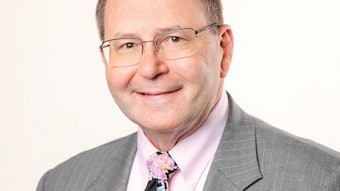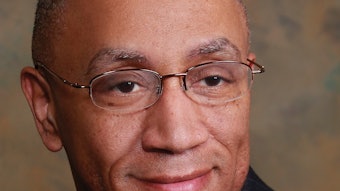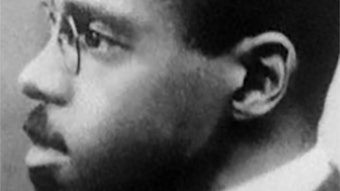Cast Your Vote: Election opens May 4, 2020
There are several clarifications to the bylaws that will be on the ballot as part of the upcoming election opening May 4. Take a moment to review these proposed clarifications before casting your vote.
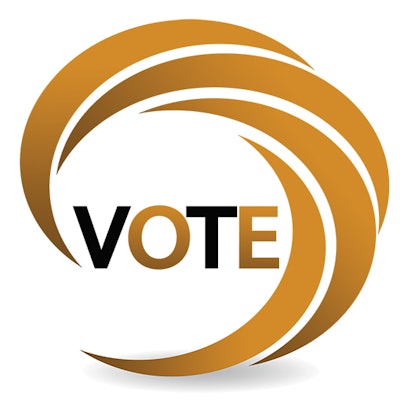
Previewing the Proposed Bylaw Changes
There are several clarifications to the bylaws that will be on the ballot as part of the upcoming election opening May 4. Take a moment to review these proposed clarifications before casting your vote. https://www.entnet.org/content/2020-proposed-bylaw-amendments
How to Cast Your Vote
AAO-HNS has partnered with Election America to administer the 2020 election of candidates for leadership positions. To ensure your election-specific broadcast email arrives safely in your inbox on May 4, simply add the following email address as an approved sender: help+AAOHNS@election-america.com. Those who have not provided an individual email address to the Academy will receive a personalized letter from Election America with information on how to access the ballot. For technical support, please call 1-866-384-9978, or email help+AAOHNS@election-america.com. For ballot-related questions, call Membership at (703) 836-4444, or email Lisa Holman at elections@entnet.org.
Candidate Statements
President-Elect
FOR ONE
OF TWO
Q: What are the strengths of the Academy that will lead us forward in our specialty, and how will you capitalize on those strengths? What do you think is the most important item in the Academy’s Strategic Plan?
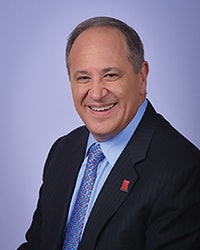
J. Pablo Stolovitzky, MD
We must always remember our Academy’s core value: to position member otolaryngologists for success in today’s unsettled healthcare environment, whether in independent private practice, academics, or employed. In challenging times, this is our guiding principle, one that as President I will pursue as I seek to enhance our core mission of education, advocacy, and research.
Our goal must be the restoration of otolaryngologists’ ability to direct the destiny of patients’ care and our own practices.
Our Academy is second to none in the advocacy and regulatory arenas. We must rely on our strengths to continue standing up with conviction for our patients and profession against government and private payers’ overreach. I will continue to find common ground among our profession’s differing interests. I’ll implement unifying strategies that I have successfully utilized as International Coordinator to foster synergistic partnerships with otolaryngology societies worldwide.
The leaders of tomorrow must be afforded ways to contribute today. Such opportunities add lasting value to their careers. I will foster a culture of inclusiveness and engagement by working with our profession’s constituent groups to ensure our diversity is treasured. I commit to transforming early-career professionals from observers to contributors through mentoring and guidance; let’s engage them earlier in our creative process.
I’ve been a leader in the Academy for over 30 years, including 10 on the Board of Directors. I wield broad business expertise as a healthcare executive and entrepreneur in a large otolaryngology practice. I’ve made significant academic faculty contributions. I’m uniquely prepared to serve in this role with the knowledge and confidence to succeed.
When I look at the evolving healthcare landscape, I see enormous opportunity for our profession in our clinical data registry Reg-entSM. It’s the most important element of the Academy’s Strategic Plan. With Reg-ent, we are prepared for changing patient populations and payers’ policies that link quality and value to payment.
Physicians should define quality, not policymakers and politicians. In time, the Reg-ent registry will allow us to do so, putting us in the driver’s seat through relevant, specialty-developed measures that actually benefit our patients without hindering our practice.
Think of what the Reg-ent registry means to us. Registries improve clinical outcomes through real-time feedback. They produce large data sets that can shape how we care for our patients. Across medicine, clinical data registries are saving physicians millions in MIPS penalties.
What can we do with this powerful tool, this nexus of quality, physician payment, and real-world evidence? If nurtured correctly, our registry will allow us to control our own destiny in Medicare payment and help preserve fair value for our services.
The accomplishments on which we stand are the result of visionary leaders who served before us. It is our responsibility to honor their legacies by creating our own. As your President, I will devote my energy, talent, and commitment to you, my colleagues. Together, we will get the job done of empowering otolaryngologists to succeed. It will be a great honor to serve as your President.
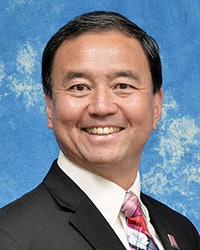
Ken Yanagisawa, MD
Our Academy’s two primary strengths are vision and unification. It is my distinct honor and privilege to contribute to the advancement of these missions.
Our Academy’s visionary leadership has strategically anticipated issues and challenges that could impact our members and our practices. Reg-entSM has proactively created opportunities for practices to meet MIPS reporting requirements, has shaped relevant measures on our terms to grade our patient care, and is accruing and shepherding vital research data. AcademyU® has evolved to offer podcasts, to webcasts, to printed material to provide lifelong learning techniques appropriate for every generation.
Otolaryngology is a small yet wonderfully diverse specialty. We must remain united with energy and priorities aligned under the larger otolaryngology/Academy banner. I have had the privilege of contributing to and understanding many facets of our Academy, from service on the Executive Committee of the Board of Directors and Board of Governors; as Board of Governors Chair, Secretary, and SEGR Chair; Development and Nominating Committee member; ENT PAC Chairman’s Club member; CPG and Regent Clinical Advisory Committee member; lifetime Millenium and Hal Foster Society member; and founder of the Eiji Yanagisawa International Visiting Scholarship travel grant. Through all of these interactions, it is clear that with cooperation we have untold strength and direction. I will utilize my abilities to hear and listen to the concerns of all constituents to create meaningful, thoughtful, and fair resolutions and directives.
Practicing physicians are continually juggling patient expectations, practice management challenges, and human resource/provider-staffing dilemmas. I will seek diverse viewpoints for these and other issues through grassroot voices via the BOG, WIO, YPS, SRF, and DIC, practitioner voices from every practice type, and global voices via our ever-growing international community network. I will advocate for our Academy to study, share, and promote successful strategies and solutions for our most key concerns, thus improving our practice workflow and our personal wellness.
Communication is the universal determinant of success and failure. I will foster the Academy’s bidirectional member communication to amplify awareness and provide timely updates in the plethora of Academy activities and actions being undertaken on our behalf.
The critical theme underlying our Strategic Plan is membership value. Our 2018 Strategic Plan contains important short-, mid-, and long-term goals in Quality, Patient Education, Future Workforce, Wellness, Advocacy, and Global Outreach. Today’s provider stressors originate from financial, physical, mental, and even employment/practice ownership demands. The Academy must demonstrate the value it provides to keep it at the top of all otolaryngologists’ to-do list. By keeping my finger on the pulse of ever-evolving member concerns and expectations, I will promote integration of the most pertinent elements to keep the next version of the Strategic Plan member-relevant.
Our Academy is the body that best understands each of our joys, our struggles, and our issues, and best represents all otolaryngologists. I hope that every member can join me in taking great pride and satisfaction in being an Academy member, and through participation and engagement, contribute to our continued growth and success.
Secretary/Treasurer-Elect
FOR ONE
OF TWO
Q: What are your priorities for fiscal responsibility in the present economy? What non-dues revenue stream, current or proposed, do you plan to optimize to help improve the financial status of the Academy?
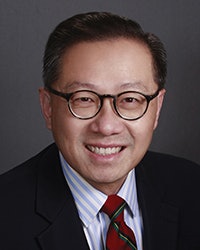
Steven W. Cheung, MD, MBA
I am deeply honored to be a candidate for election as Secretary/Treasurer-Elect of the Academy. The incumbent serves as Chair of the Finance Investment Subcommittee and discharges three major duties: (1) oversees the annual budgeting process, (2) monitors budgetary variances and operational activities of the Academy and the Foundation, and (3) reports to the Executive Committee and the Board of Directors. Those responsibilities require active stewardship of financial sustainability and promotion of accounting transparency.
I had the privilege to serve as a member and Chair of the Academy Audit Committee from 2012 to 2018. In that role, I helped to analyze financial statements, strengthen internal control procedures, and adopt best practices. I have been impressed with the Academy’s consultative culture to ensure a highly disciplined approach for decision-making on budgetary, investment, and debt service matters. I was extremely pleased that the Academy acted to retire an expensive interest rate swap contract arising from permanent headquarters acquisition in 2008. Leadership chose a predictable fixed rate debt instrument that took advantage of the current permissive Federal Reserve monetary policy. So long as inflation stays in check, I would, as your Secretary/Treasurer, prioritize maintaining membership dues and meeting fees at their current levels.
I hope to work with the Academy to reduce dependency on publication revenue as a critical driver of net income accrual. Momentum toward open access publishing has accelerated. There is a strong likelihood of major disruption to the traditional funds flow model, where society-sponsored journals make material payments to professional organizations. I believe Academy leadership should address this issue soon. I would catalyze discussions among stakeholders to develop a consensus strategy. I would aspire to deliver a solution that provides unfettered public access to scholarly contributions and advances patient care, research, and education. I am confident we will be able to navigate this incipient change in revenue stream successfully.
I would seek to assist EVP/CEO Dr. Denneny and the Reg-entSM team to undertake a comprehensive review of this initiative. I would prune unpromising paths, rebalance resources to promising areas, and identify payors and payment models to grow revenue. I would devote considerable time and energy to ensure the Academy remains financially robust to meet its obligations and realize its ambitions. I would be extremely pleased to serve as your Secretary/Treasurer-Elect to move our common interests forward.
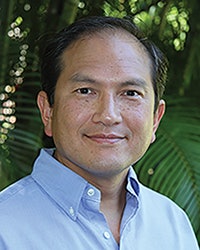
Ken Kazahaya, MD, MBA
Fiscal responsibility is important for operational efficiency to ensure long-term sustainability, viability, and growth of the AAO-HNS/F (Academy). In recent years, the Academy has annual net gains in assets. We must strive to continue to grow revenue from current and new sources. It is important to be conscious of expenditures and returns on those expenditures while continuing to build value the Academy provides to the membership. In addition to developing realistic balanced annual budgets, we must maintain adequate cash flows to ensure payment of existing obligations. Growth of dues and non-dues revenue and assets will reduce reliance upon investment income and asset reserves and allow them to grow for future projects. Strong financial health is important if we wish to be able to pursue the Academy’s Strategic Plan.
Non-dues revenue comprised about 61% of the annual budget. The largest non-dues revenue for the AAO-HNS is the Annual Meeting (AM) & OTO Experience. The 2019 AM accounted for about 38% of the FY20 budget (62% of non-dues revenue). While the majority of the revenue is from domestic attendees, international attendees comprise about 5% of AM revenue. Boston, Los Angeles, Philadelphia, Nashville, and Miami constitute the next five AM locations—it is essential to provide an enticing program and capitalize on the attraction of the host city for both domestic and international attendees. Formulating concepts to expand the benefits for meeting attendees and encourage the involvement of resident and young providers as well as otolaryngology affiliates would expectantly continue to increase attendance. Other efforts should encourage former attendees who have not attended a recent AM to return. Increasing meeting attendance should translate into increased revenue by enticing more robust exhibitor participation and corporate support.
Miscellaneous revenue sources include publications, product sales, corporate support, donations, and investment income. Education products such as the Home Study Course and digital education products (Members+ and the AM webcasts provided the most revenue) provide membership with valuable information. Perhaps new content could be directed at satisfying the ever-growing CME requirements that many states are instituting (opioid prescribing/crisis, child abuse, domestic violence, etc.). A bright star on the horizon is the Reg-entSM registry. Reg-ent’s design shall provide meaningful benefit to our membership, and when fully realized, the Academy will develop significant revenue streams from Reg-ent. It will also be important for Reg-ent to have tangible benefits for and relationships with otolaryngologist employers. Additionally, development activities need to cultivate donor support for the Academy and the ENT-PAC and will need to find means to monetize advocacy efforts.
The Academy’s portfolio has continued to grow. The current economy has seen significant investment growth. I believe that it is important to stay well informed in this potentially volatile time and maintain a conservative stance while not being afraid to make calculated aggressive moves when appropriate. I would strive to maintain a balanced and well-diversified investment policy, work to maximize our investment income while not putting our portfolio at unnecessary risk, and monitor our investment portfolio performance against standardized metrics.
Director-at-Large: Academic Practice
FOR ONE
EACH TYPE
OF TWO
Q: What do you see as the essential task of the Directors, and in what ways are you well suited to that role? What do you think is the most important item in the Academy’s Strategic Plan?
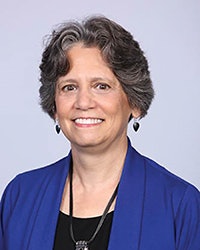
Ellen S. Deutsch, MD, MS
My vision is to accomplish our mission in a strategic and fiscally responsible manner. The most essential task of At-Large Directors is to probe our strategic approach with good and timely questions and provide thoughtful solutions. The Boards’ overall purposes are to ensure adequate planning and resources, manage resources appropriately, determine and monitor programs and services, and enhance the Academy’s public image. I have served as President of the ABEA and Medical Director of the Pennsylvania Patient Safety Authority, with a successful track record of leadership in nonprofit and educational organizations. I will apply knowledge gained from these experiences to help the Academy accomplish its vision and mission, including advocating for our members and the public.
The Academy’s Strategic Plan provides a balanced portfolio designed to promote quality, enhance the Academy’s outreach and impact, and cultivate future otolaryngologists. As an At-Large Director, I will tirelessly support all of the Academy’s goals and objectives. Right now, the most important item in the Academy’s Strategic Plan is enhancing our future workforce. As my career has evolved, I have experienced the Academy’s beneficial influence on my professional growth, innovation, and change in how we deliver patient care and training. I have contributed to and benefited from deep involvement in developing and implementing creative methods to enhance the knowledge and skills of trainees, colleagues, and other members of healthcare delivery teams, improve the systems in which we provide healthcare, and enhance provider and patient satisfaction. My experience analyzing data from the Pennsylvania Patient Safety Reporting System, containing more than three million patient safety event reports, can help the Academy optimize insights derived from the Reg-entSM database. In summary, my broad range of professional experiences and interests provide insight and perspective that will allow me to champion each item in the Academy’s Strategic Plan.
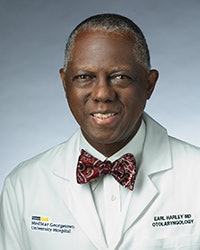
Earl H. Harley, MD
I am pleased to be nominated for this position, and I feel that I am well suited to be an At-Large Director because of my broad background as a retired Navy physician with leadership experience in both naval medical centers as well as fleet commands, including my assignment as a Flight Surgeon with the Second Marine Airwing in operation Desert Shield/Desert Storm. Also, my three-year tenure as interim chair of Otolaryngology Head and Neck Surgery at Georgetown University further qualifies me to be a director.
An organization requires an engaged board of directors. The essential role of a director is to ensure the organization’s viability and long-term success. This includes devising and implementing policies and procedures that ensure the organization remains strong.
To remain strong, there must be adequate oversight. The main areas of oversight must be in the following categories: financial, membership engagement, and strategic planning. Financial stability includes proper stewardship of our resources with wise decision-making and budgetary restraints. Membership engagement involves reaching all segments of our specialty, including trainees, practicing otolaryngologists, and emeritus members. But it also involves inclusion and diversity that encompasses religion, gender, ethnicity, and sexual orientation, not only in the rank and file but at all levels of the leadership. Additionally, fostering a strong bond between the Board of Directors and the Board of Governors is imperative.
The Academy’s Strategic Plan as promulgated in 2018 included five goals. I believe the most important goal is the first that seeks to identify environmental conditions having the greatest impact on our future direction. This is because knowing the landscape prepares an organization in a way that is flexible enough to adjust to changes and transitions that can be swift and unpredicted. Without knowing the current environment, an organization may find itself unable to survive.
Director-at-Large: Private Practice
FOR ONE
EACH TYPE
OF TWO
Q: What do you see as the essential task of the Directors, and in what ways are you well suited to that role? What do you think is the most important item in the Academy’s Strategic Plan?
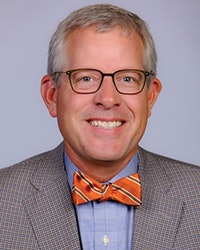
Eugene G. Brown III, MD
As a private practice otolaryngologist in Charleston, SC, it is an honor for me to receive a nomination for Director At-Large Private Practice. A seat on the Board comes with it a duty to lead Academy initiatives and to oversee operations. For me, the position also offers a larger platform from which I can focus on my passion to increase physician participation and leadership in Academy initiatives. The charge is to identify and to encourage next generation leaders. We need to embrace mentorship and take an active role in the direction of our practices, our field, and the house of medicine overall. If physicians don’t lead, then we will be led and probably in unpopular directions.
We took a leadership position in our region when we chose a different strategy to combat burnout, narrowing profit margins and physician employment. We launched OASIS (Otolaryngology and Allergy Specialists – Integrated Solutions), a grassroots organization whose mission is to promote collaboration among otolaryngologists. In five years, we have created value for members, and we have promoted physician leadership. Our annual conference attracts a national audience and creates a platform from which we consider challenges and opportunities. Our simple message is “together we are stronger.”
I was identified as a stakeholder and participated in the creation of the new Strategic Plan. The plan highlights a need for membership growth globally. A corollary challenge in times of increasing subspecialization is to keep the Academy centered as the organization for all otolaryngologists so that our interests are not splintered. From my perspective, the most important items in the plan involve future practice needs and workforce challenges. Predicting what our specialty will be and what we will need in the future is difficult but paramount in positioning otolaryngology for long-term success.
Thank you for this opportunity.
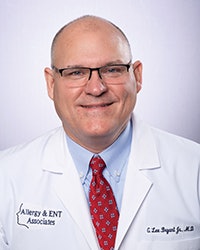
G. Lee Bryant, Jr., MD
It is an exciting time to practice otolaryngology-head and neck surgery. After 21 years of private practice, I am as professionally satisfied as ever. I have a genuine passion and excitement for our field, and even my own family has felt that energy as my son is now attending medical school. Our Academy has played a large role in my professional satisfaction. My desire is to help the Academy to continue inclusivity and to support the wide variety of environments in which our members practice otolaryngology. As an At-Large Director from the private practice sector, I understand the importance for advancement of initiatives that may impact private practice most while also supporting the overall objectives of the Academy.
With regard to our Academy’s Strategic Plan, obviously the most important goal relates to our core purpose, which is essentially to be patient-centric and to strive for excellence in patient care. I feel that advocacy is a need for the future success of all practicing physicians, both in the United States and globally. My goals have always been patient-centric, and my skill set includes being President of a single specialty group for the past 20 years, in which we have had a vibrant general otolaryngology practice and busy allergy practice following the AAOA guidelines. Our practice has incorporated Advanced Practice Practitioners over the past 15 years; and in conjunction with ASCENT, I have given instructional courses at our Annual Meeting on this topic. Lastly, I have a passion for cutting-edge in-office procedures and have trained hundreds of peers over the past few years. I look forward to the opportunity to advance the initiatives of our Academy.
Nominating Committee: Academic
FOR TWO
PER PRACTICE
TYPE OF
FOUR
Q: How will you select candidates for Academy leadership that best represent our diverse membership? What experience do you have that will aid in selecting leaders that will advance the mission of the Academy?
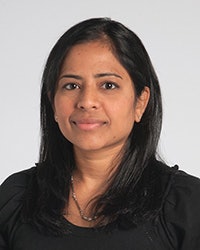
Samantha Anne, MD, MS
Candidates for Academy leadership need to have innovative vision and advocate for our membership. To truly capture the needs of our heterogeneous membership, I believe that leaders need to represent the diversity, including practice settings, race, gender, and other aspects. Most importantly, I believe our leaders must conduct themselves with integrity and civility. I will seek these characteristics in recruiting prospective leaders of our Academy.
I have had the opportunity to serve the American Academy of Otolaryngology–Head and Neck Surgery in various ways, including on the Board of Directors (as Young Physician Section Chair) and on the Board of Governors (as Secretary and current Vice Chair of the Governance and Society Engagement Committee). In addition, I have previously served as Chair of the Women in Otolaryngology Section’s Nominating Committee and on the American Society of Pediatric Otolaryngology’s Nominating Committee.
This service afforded me the chance to observe leaders and the qualities that elevate them as successful advocates for our profession. This insight, along with my motivation to identify talented, diverse, and innovative leaders, will guide me if I am given the incredible honor to serve on the Nominating Committee.
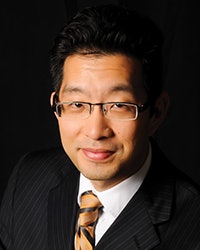
C.W. David Chang, MD
Leadership selection for such a large eclectic organization should be focused on seeking those with visionary outlook, with the ability to bridge and connect among our diverse membership, and who advocate equitably and ethically on behalf of providers and patients. Embracing diversity means valuing the multiplicity of perspectives within our membership. However, professional identities are too often simplified into labels of gender, race, sexual orientation, ethnicity, social economic status, education/training pedigree, geography, subspecialty, and practice organization. While it remains important to appreciate shared experiences within such groups, compartmentalization can also lend to assumptions that downplay the complexity of influences.
As a residency program director, the resident selection mirrors the task of the Nominating Committee. I believe that quantifying characteristics into neat boxes and algorithms fails to faithfully and holistically evaluate candidates. I strive to keep this in mind in all leadership roles I have served, ranging from president of my state society to co-chairing the PSQI Committee. Through my work with the Academy—as BOG Region 7 Representative, member of committees, and associate editor for the Academy’s journals—I continue to meet differently talented individuals within our society, reminding me that our unity does not require uniformity.
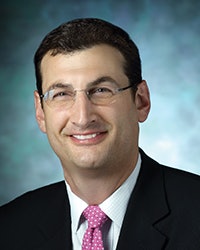
Alexander Hillel, MD
To better serve the evolving needs of our communities, it is incumbent upon our leaders to represent diverse backgrounds and experiences. I recognized this need and pioneered a specialized clerkship focused on providing students who are underrepresented in medicine an opportunity for mentorship with otolaryngology faculty who themselves came from diverse backgrounds. Those students have since gone onto myriad residency programs throughout the country and are now primed to shape the next generation of otolaryngologists. In a similar spirit, I will emphasize the selection of candidates for Academy leadership who will champion our values of equity and excellence; anticipating their diverse perspectives will drive richer discussions amongst our leadership and better serve all Academy members.
Through my leadership as residency program director, service on multiple hospital committees, and as a member of otolaryngology and surgical societies I have extensive firsthand experience working with all types of leaders. These roles helped me recognize that great leaders clearly communicate their vision and rationale, hold themselves and others accountable, and understand that leadership is grounded in service. Identifying future leaders who demonstrate these qualities will ensure the Academy continues to advance our mission and enrich the experience for all our members.
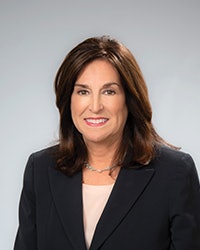
Anna M. Pou, MD
I will look for leaders who themselves represent a diverse group and who can unite the members of the AAO-HNS moving our Academy forward. Through my experiences on multiple committees and mentoring young physicians, I have met such a diverse group of clinicians who are forward-thinking, insightful, and open-minded; it would be a privilege to nominate such individuals for Academy leadership. By also involving young members with leadership potential, we can better understand their challenges regarding parenting, family, and career, so that we can work together toward continued progress and excellence in these changing times.
Over the years, I served on multiple AAO-HNS and AHNS committees, serving as AHNS Program Chair in 2017 and Chair of the Trauma Committee. These experiences provided me with the opportunity to work with many members, including our military colleagues, forming lasting relationships and providing a better understanding of the needs of our membership.
As Program Director following Hurricane Katrina, I networked with many program directors and leadership in the RRC to rebuild our residency program. I served on many SUO committees, furthering my relationships.
I have numerous, diverse contacts nationally through extensive lecturing on disaster medicine.
Nominating Committee: Private Practice
FOR TWO
PER PRACTICE
TYPE OF
FOUR
Q: How will you select candidates for Academy leadership that best represent our diverse membership? What experience do you have that will aid in selecting leaders that will advance the mission of the Academy?
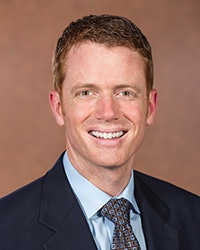
Eli R. Groppo, MD
As a member of the Nominating Committee, my No. 1 goal will be to protect and nurture the amazing diversity of our Academy, ensuring that our members are fairly represented at all levels of leadership. While we all get up each day with the goal of taking the best care of our patients, the nature of our practice environment plays a huge role in how we accomplish this. The struggles of taking care of patients in private practice, academic, military, and employed practice environments can be very different. Having leaders who bring perspective from each of these practice environments is paramount.
To accomplish this goal, I will rely on my experience as a leader in a large private practice otolaryngology group and a large network of similar physician leaders from around the country. I am honored to have served on several Academy committees as well as serving on our Board of Governors. This service has provided me insight on how our Academy interfaces with government, hospitals and administrators, other physician organizations, and most importantly, our patients. I will use this insight to help identify and recruit physician leaders who will carry on our mission. I humbly ask for your support.
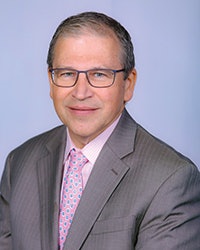
Darius Kohan, MD
During my 30-year career in private practice and academics, I have had the privilege of collaborating with colleagues from all aspects of otolaryngology throughout the United States. I have been involved in numerous BOG and AAO-HNS committees and gotten to know, and appreciate, the outstanding dedication and leadership quality demonstrated by our members. In private practice, I am familiar with all the challenges facing us and the opportunities available for improving the welfare of our patients and the well-being of the otolaryngologists attempting to optimize patient care. Participating in regional and national efforts to promote Academy goals, educate the next generation of otolaryngologists, and improve patient care, while collaborating with our peers in all fields of medicine, allowed me to personally become familiar with the large pool of talent available to the Academy. Their work ethic and dedication to the welfare of our patients and achieving Academy goals was amply demonstrated. I intend to nominate the most deserving otolaryngologists to leadership positions based upon merit and ability to represent our ever-more diverse membership. Leadership must reflect the needs of both private practitioners and academicians, the geography and demographics of our country, and the vision of the Academy for a brighter future.
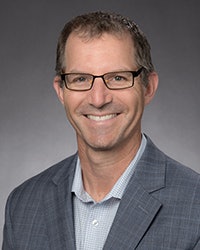
Seth R. Schwartz, MD, MPH
Our Academy is diverse in location, practice setting, specialization, ethnicity, age, gender, religion, sexual orientation, and interests. Having a leadership team that is representative and understanding of these differences is critical to our success as an organization. As well as leveraging my connections through the AAO-HNS, my regional society, my subspecialty society, and my many colleagues and former residents, I plan to work with groups such as WIO, SRF, the subspecialties, and regional societies to find future leaders who represent and embrace our diverse membership and are interested and willing to work with Academy.
I just finished a term on the Board of Directors and Executive Committee of the AAO-HNSF and previously was involved in guiding the direction of the Academy as Chair of the Guideline Task Force, an invited guest of the Board, and a member of the last two strategic planning sessions. Through this involvement, I have seen different leadership styles and gotten to know current and former leaders of our Academy. I have seen our strengths, but also opportunities for new perspectives in leadership to make sure that our Academy stays relevant in this rapidly changing healthcare environment.
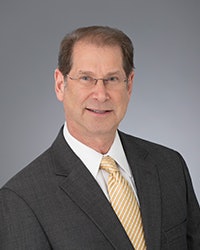
Daniel L. Wohl, MD
The strength of our relatively small but impactful specialty comes from understanding and connecting the interests of our diverse membership, whether from urban or rural communities, whether in private, academic, or a hybrid practice model, remaining fully respectful of all academic and social backgrounds. If elected, I would listen to returning members of the Nominating Committee and bring my career experience into the conversation, having started out in academic medicine and now in private practice for over 15 years.
My career arc has afforded me the opportunity to continuously interact with an ever-evolving spectrum of highly motivated, skilled, and involved tier of colleagues who help define our specialty. My 10 years of Board of Governors responsibilities, including the past three years on the Executive Committee, have enabled me to hear both grassroots and state society concerns. I have served three full terms on Academy committees and remain an active member in two subspecialty societies. I would use this experience to identify colleagues who understand the value of our specialty’s interconnectivity, who will represent all of us well, and who will be passionately proactive and supportive of both the current and future generations of otolaryngologist-head and neck surgeons.
Audit Committee
FOR ONE
OF TWO
Q: What is your particular experience or interest that would make you an effective member of the Audit Committee of the Academy?
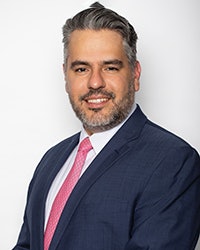
Oswaldo A. Henriquez-Ajami, MD
I currently serve as the President of the Metro Atlanta Educational Society of Otolaryngology, a nonprofit society with parallel goals to our Academy. Having served in various roles, including the principal financial officer, has given me unique insight into the importance of reliable financial reporting while reducing risk to foster and maintain membership confidence.
Our current socioeconomic environment has elevated the importance for institutions such as our Academy to form effective Audit Committees in order to assist our governing board in achieving our mission objectives while ensuring transparency.
For our Academy to serve as a nonprofit institution aimed at advancing our field, it is crucial to offer the utmost transparency in its governance. The Audit Committee plays a pivotal role in this, and that is the main reason I am running to be one of its members. If elected, I will commit myself to being an engaging, active member of the Audit Committee and helping our Academy to reach its missions and goals.
Thank you for considering my candidacy.
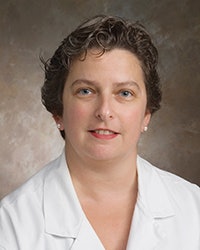
Susan D. McCammon, MD
I will be an effective member of the Audit Committee because I provide institutional memory and broad understanding of the strategic goals of the Academy. I am honored to be the immediate past chair of the AAO-HNS/F Ethics Committee. Thus, I have been a member of the Boards of Directors, ex officio, for six years. This has given me broad exposure to the issues of risk management, conflict and coincidence of interest, and accountability that face our members. I have been an invited participant in the Academy long-range strategic planning sessions, and I have prior experience serving on the Audit Committee of the Head and Neck Cancer Alliance. A critical role of the Audit Committee is to help the Academy match stable funding to its mission and Strategic Plan. Diligent, detail-oriented oversight of the annual books and records of the Academy will be balanced by prudent understanding of the priorities of the Academy membership. I have been a head and neck surgeon for 15 years and have practiced in a university setting and in underserved communities. My clinical practice has evolved over the years to include clinical ethics and conflict mediation, medical humanities, and palliative and supportive care.
Let Your Voice Be Heard: Voting Opens May 4
Thank you for reviewing the thoughtful statements of the 18 candidates for elected office of the Academy. That is just the first step. It is critical that you follow through and cast your ballot for the candidate of your choice when elections open on May 4. The process is streamlined and should take no more than a few minutes to complete. Your Nominating Committee, chaired by Past-President Albert L. Merati, MD, has done a fabulous job in identifying and selecting these outstanding candidates who will help lead us through the evolving transition to our healthcare system. This is your chance to have your voice heard. Please finish the job and cast your ballot during the 2020 election cycle.


